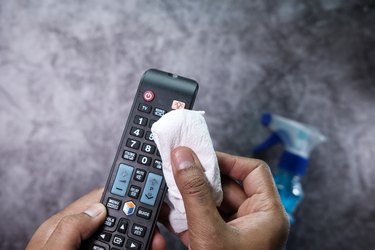Sure, it can be meditative, and it's rewarding when you're finished, but few of us really love cleaning. The longer you spend cleaning, the less time you have for other things, so the process should really be as efficient as possible. Don't waste time making mistakes that create a bigger mess in the long run.
1. Using the Same Cloth for Everything
Video of the Day
Your kitchen has plenty of its own germs for you to kill, so why introduce germs from the bathroom sink you just cleaned? Be diligent about using a new, clean cloth for every area of your home. Buy a pack of 50 or 100 microfiber cloths so you're never short on washable cloths.
Video of the Day
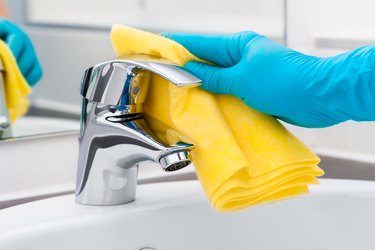
2. Dusting After Vacuuming
As a general rule, it's a bad idea to clean from the bottom up. If you start with the floors, they'll end up littered with dust and debris that falls when you clean countertops and tables. Dust and clean higher surfaces first and make the floors the last thing you tackle.
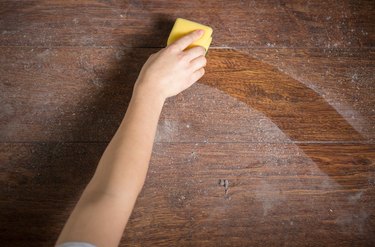
3. Always Washing Laundry on Hot
When it comes to getting things really clean, hotter is not always better. Using the hottest setting on your washing machine may kill germs lingering on your clothes, but that won't matter if your clothing comes out faded and small enough to fit a preschooler. Stick with hot water for towels and heavily soiled things, like cloth diapers. For most other items, warm or cold water is the better choice.
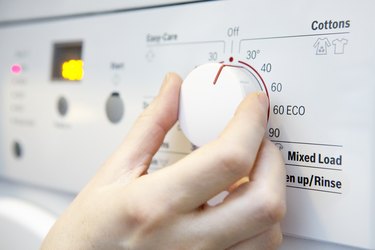
4. Neglecting Your Vacuum Cleaner
Who cleans the cleaner? Using a dirty vacuum cleaner will throw nasty particles into the air, and you won't be able to clean with maximum efficiency. The vacuum head, hose and canister all need to be cleaned, and your vacuum filter needs to be replaced routinely. Different models have different components, so search online for your specific model's cleaning instructions.
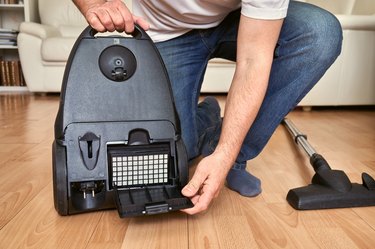
5. Washing Wood in the Dishwasher
Your cherished wooden cutting board may never be the same after a trip through the dishwasher. Exposing wood to that much water and heat can cause it to warp and break. Always wash wooden bowls, spoons and other kitchen tools by hand. Dry them right away.

6. Using Bleach in the Wrong Way
Some people mistakenly believe that bleach is an all-purpose cleaner that is appropriate for tackling any dirty or sticky mess. In reality, bleach should be used sparingly and as a disinfectant rather than as a cleaner. Never use it on metal or porous surfaces, like wood or stone, and never use pure bleach. For disinfecting household surfaces, the Centers for Disease Control recommends using a dilution of 1 cup bleach to 5 gallons of water.
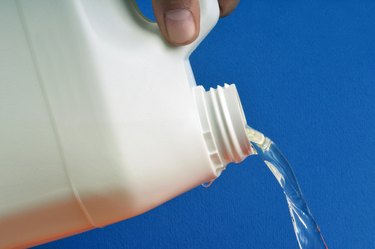
7. Scrubbing at Carpet Stains
It might be fun to do a Lady Macbeth impression while scrubbing your carpet – "Out, damned spot!" – but elbow grease isn't the best solution for rug stains. Scrubbing at a spill may just cause the liquid to soak deeper into the fibers or may make the stain larger. Always use a blotting motion while cleaning carpet stains.
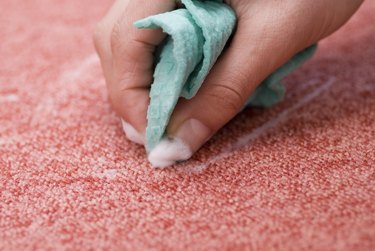
8. Ignoring Air Filters
Your counters may be clean, but what about the air you breathe? It's easy to overlook filters and fans during your weekly cleaning sessions. Before you know it, they've been neglected for months. HVAC units, humidifiers and dehumidifiers all usually have filters that need to be cleaned or changed regularly.
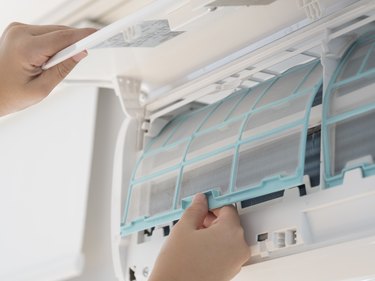
9. Cleaning With Dirty Appliances
Washing machines and dishwashers aren't self-cleaning; it's up to you to keep them clean between uses. Mildew can grow in these damp, warm spaces, and you may notice unpleasant odors developing. You can buy special products designed to clean and deodorize these appliances, but running white vinegar through an empty cycle may be just as effective.
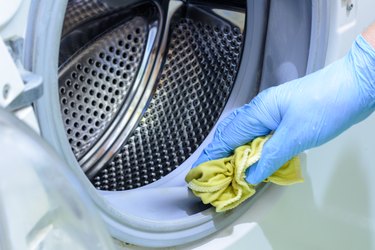
10. Forgetting "Touch Points"
Naturally, the things you touch the most are also the germiest things around you. Your weekly cleaning routine may include habitual tasks, like vacuuming, wiping down counters and washing windows, but you should be cleaning those touch points even more frequently. Try to wipe down things like remote controls, your phone, your keys, doorknobs and toilet handles at least once every few days if not daily.
